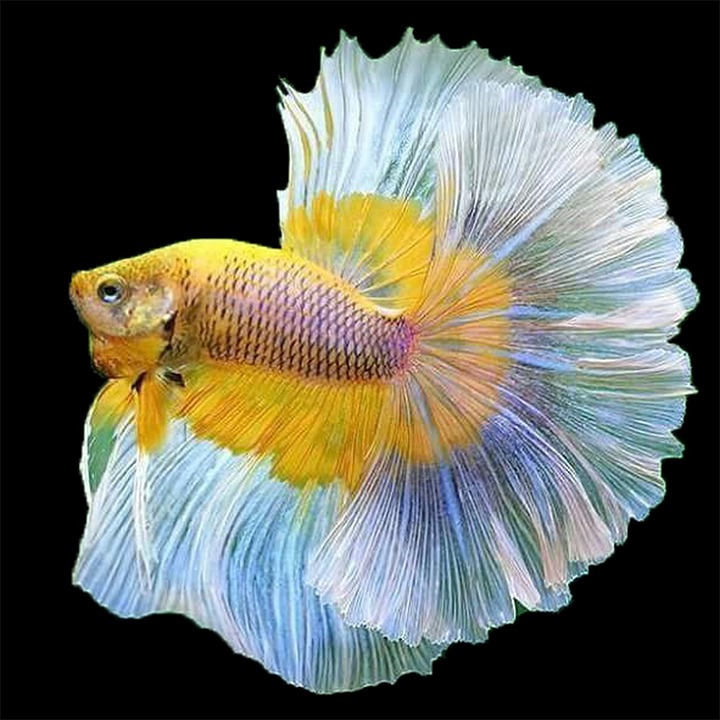Keeping a clean and healthy fish tank is essential for the overall well-being and longevity of your aquatic pets. Proper care and maintenance of your fish tank not only ensure a thriving environment for your fish but also create a visually appealing and enjoyable space for you to admire. In this ultimate guide, we will explore the key steps and practices to maintain a clean and healthy fish tank.
Setting up the Perfect Environment
The first step in maintaining a clean and healthy fish tank is to create the perfect environment for your fish. This involves choosing the right tank size and location, selecting appropriate filtration systems and equipment, and understanding the specific needs of your fish species. A larger tank with ample space provides better water circulation and allows for a more stable environment. Additionally, researching the specific requirements of your fish species will help you create an environment that mimics their natural habitat.
Regular Water Testing and Monitoring
Testing the water parameters of your fish tank is crucial for maintaining a healthy aquatic ecosystem. Regularly testing the pH, ammonia, nitrate, nitrite, and other parameters helps ensure that the water conditions are optimal for your fish. The frequency of water testing may vary depending on the tank size, fish species, and other factors. Investing in reliable test kits and tools will provide accurate results and help you make necessary adjustments to maintain water quality.
Establishing a Proper Cleaning Routine
Regular tank cleaning and maintenance are essential for the well-being of your fish. It is recommended to clean the tank every 2-4 weeks, depending on the tank size and the number of fish. During cleaning sessions, remove debris, excess food, and any uneaten particles. Partial water changes are also vital to remove accumulated waste and maintain water quality. However, ensure that the new water is properly treated and matches the temperature and pH of the existing tank water.
Maintaining Optimal Water Quality
Water quality plays a significant role in the health of your fish. Controlling water temperature is crucial, as fluctuations can stress your fish and compromise their immune system. Additionally, maintaining balanced water hardness and pH levels promotes the overall well-being of your aquatic pets. Addressing common water quality issues such as cloudy water and algae growth is also important. Regular maintenance, proper filtration, and avoiding overfeeding can help prevent such problems.
Feeding Habits and Nutrition
Understanding the specific dietary requirements of your fish species is vital for their overall health. Overfeeding can lead to water pollution, obesity, and other health issues. It is recommended to feed your fish small portions multiple times a day, ensuring they consume all the food within a few minutes. Selecting high-quality fish food and supplements that suit the dietary needs of your fish will provide them with the necessary nutrients for optimal health and vitality.
Disease Prevention and Treatment
Maintaining a clean and healthy fish tank significantly reduces the risk of diseases. Familiarizing yourself with common fish diseases and their symptoms will enable you to detect any potential issues early on. Preventive measures such as quarantine, regular water testing, and maintaining optimal water conditions can minimize the risk of diseases. If your fish do fall ill, promptly isolate and treat them using appropriate medications and seek professional advice if necessary.
FAQs: Frequently Asked Questions
To further assist you in maintaining a clean and healthy fish tank, here are answers to some frequently asked questions:
1. How often should I clean my fish tank?
The tank should be cleaned every 2-4 weeks, depending on the tank size and number of fish.
2. Can I use tap water for my fish tank?
Yes, but it must be treated with a water conditioner to remove chlorine and other harmful chemicals.
3. What’s the ideal temperature for my fish tank?
The ideal temperature varies depending on the fish species. Research the specific requirements for your fish and adjust accordingly.
4. How do I control algae growth in my fish tank?
Proper maintenance, regular cleaning, and controlling light exposure can help control algae growth. Additionally, consider adding algae-eating fish or using algae-controlling products.
5. How can I prevent fish diseases?
Maintain optimal water conditions, avoid overfeeding, quarantine new fish, and regularly monitor your fish for any signs of illness.
6. What should I do if my fish get sick?
Isolate the sick fish, research the symptoms, and treat them with appropriate medications. Consult a veterinarian if necessary.
7. Can I keep different fish species together in the same tank?
Some fish species can coexist peacefully, while others may have compatibility issues. Research the compatibility of different fish species before adding them to the same tank.
8. How can I tell if my fish are stressed?
Signs of fish stress include changes in behavior, loss of appetite, faded coloration, excessive hiding, and rapid breathing.
9. Is it necessary to use a water conditioner?
Yes, a water conditioner removes harmful chemicals, such as chlorine, from tap water, making it safe for your fish.
10. Can I use natural or artificial decorations in my fish tank?
Yes, both natural and artificial decorations can be used, as long as they are aquarium-safe and do not harm the fish or alter water conditions.
Conclusion
Maintaining a clean and healthy fish tank is essential for the well-being of your aquatic pets. By setting up the perfect environment, regularly testing and monitoring water conditions, establishing a proper cleaning routine, maintaining optimal water quality, providing proper nutrition, and taking preventive measures against diseases, you can create a thriving and visually appealing aquatic ecosystem. Remember, continuous learning and research are key to staying updated with optimal fish care practices and ensuring the longevity and happiness of your fish.









